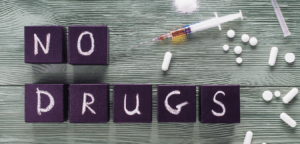
Why Running Is Good for Addiction Recovery
Besides being a highly rewarding exercise that strengthens the heart and respiratory system, running brings unique physical and mental benefits to those struggling with excessive stress—and with drug addiction.
Most people who struggle with addiction are looking for an easy means of relieving pain or stress. By providing an alternate, healthier method of relief and mood improvement, running and other aerobic exercise helps suppress drug cravings and reduce temptations to relapse. It also can help remedy other health problems caused by addiction.
Let’s take a closer look at why running is good for addiction recovery.
The Positive Effects Running Can Have on Addiction Recovery
Many physical benefits of running are obtainable in a short period of time, such as increased stamina, weight loss and stronger heart and lungs. However, the first improvements noticed are typically mental. These include:
- A strong sense of increased positive feelings. Known as a “runner’s high” vigorous exercise increases the brain’s endorphin and dopamine levels, which makes you feel better.
- Reduced everyday depression. (In cases of addiction, depression is typically a factor and often an actual accompanying illness.)
- Reduced cravings for unhealthy foods and drugs.
- Increased sense of being in control, which reduces the chronic sense of helplessness and frustration common to most addicts.
- Clearer thinking.
- Higher self-esteem, confidence and sense of achievement.
- Greater hope for the future.
- Increased learning ability.
- Lower relapse rates in addiction recovery.
There’s even some evidence that running helps mitigate drug-inflicted brain damage.
Some people find running more effective than discussion-based support groups in providing motivation to maintain sobriety. Running is capable of generating a “support group” of its own. Like any favourite activity, it offers opportunities to meet others with similar interests who encourage each other toward success.
Finally, unlike many “striving to get ahead” approaches to life, running is fun and exhilarating. In most cases it leaves only “good fatigue” behind.
Incorporating Running into Your Recovery Journey
Even with its benefits, taking up running isn’t an instant-fix solution. Additionally, it can even be dangerous if handled wrong.
If you’re new to running, you should consult with a doctor before starting an exercise program, especially if you’re over 40. Too much too soon can lead to physical injury, which can set you back several days or weeks. When you’ve also had a substance-abuse problem (particularly one that goes back several years), there’s the additional risk you may have done lasting damage to your heart or other organs. This can further weaken your body’s ability to manage aerobic exercise. When seeking advice from a doctor, be completely open about your history—no matter how embarrassing it may feel.
Once you get medical approval for regular running, take steps to stay fit and stick to a program. Wear loose, perspiration-absorbent clothing and good running shoes. Plan for staying hydrated, especially as the temperatures climb up. In general, it is important to keep healthy habits in your diet and sleep.
Another great way to stay committed is to set a weekly running schedule. If you run only when you “feel like it,” you will increase the risk of injury and fatigue when you do get out—if the whole program doesn’t die of neglect first. Keep a schedule convenient to your other commitments and your personal periods of peak energy. Some people run best in the morning, while others feel better after work.
New runners should also try to find a training partner. This will keep you motivated and make things more fun overall. If you don’t know anyone who’s likely to be interested, join a running club.
Running Tips for a Recovering Addict
There are also a few sensible running points specific to the recovering addict.
Avoid routes that take you past bars, beer stands or any other venue where chemical substances are easily available—especially places you frequented during your “drunk days.”
Don’t be overly ambitious or perfectionistic. A common risk factor for both addiction and relapse is being too hard on oneself for not always getting everything exactly right. As in addiction recovery, focus on doing the right thing one day at a time.
Be careful not to replace one addiction with another. Even though running is healthy overall, it can become a means of avoiding or putting off legitimate responsibilities. In some cases, “exercise addiction” can aggravate mental disorders or lead to life-threatening physical conditions. Keep other interests in your life, and give special attention to relationships. Discuss your individual weak spots with your doctor, therapist and/or support group.
Running is good for addiction recovery and for guaranteeing a sober, healthy future. You’ll do even better if you think of it not as running away from addiction, but as running toward that brighter future.
Credited to: Podiumrunner










